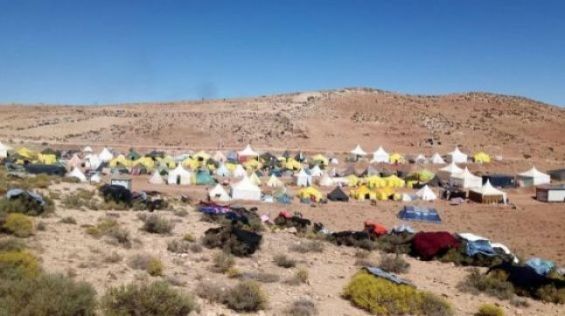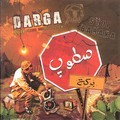Three months ago, thousands of families from the Marrakech-Safi region found themselves in tents after a 6.8 earthquake hit the country, killing 2,960 people and injuring many more. Today, while they suffer the hardships of living in camps, some of these families are still waiting for the funds allocated by the government.
«In my village, only three families out of 85 received the 2,500 Dhs monthly allocation granted to the affected households», Ahmed, a teacher from Tasekourt, a small village near Amezmiz, told Yabildi. Meanwhile, these families wait in fear and cold. «People prefer to stay by day in their cracked houses and spend the night outside because they fear that they would collapse in their sleep», he said.
Others are more worried about the snow, the wind and the harsh winter months that the region is known for. «In my other village Arg, near Ighil the epicenter of the earthquake, people are mostly worried about their tents not being adapted to snow», the young teacher explained.
The same goes for Asmaa, who lives with her grandfather in Talat N’Yaacoub, a small town in the Al Haouz province that was also hit hard by the earthquake. «It has rained recently, our tents flooded, and we had water leaking», she told Yabiladi.
«It gets very cold in the evenings and early mornings, we are forced to stay in tents as almost all houses collapsed or suffered unrepairable cracks», said the young woman who is currently unemployed after she lost her job at a local cooperative due to the earthquake's destruction.
Like other families in her village, Asmaa and her grandfather have not been able to benefit from the subsidies pledged by the government. «We still don’t even have that PIN number sent to households eligible for aid, I mean, few are the ones in my douar who were able to receive the monthly allocation», Asmaa explained.
Waiting for a second wave of financial relief
In Agni, a village in the commune of Amaghrass in Amezmiz, Adil Naithammou who heads a local association said that, he and other earthquake victims are still waiting for financial support. After they learned that they were not eligible for the first wave of financial relief, they had to apply once again.
«When funds were granted the first time in October to some families, those who were not covered filed complaints and resubmitted their applications. A second committee came to the douar to inquire the situation and the damage done to the houses. We have been waiting ever since», Adil said.
Mohamed from Arg, a small mountainous village at the foot of Mount Siroua in the Anti-Atlas, is also in the same situation. «I have not gotten any money from the funds. We live currently in tents, some houses show cracks or are about to collapse. As far as I know, none of the families in our douar have received the money promised by the government», he told Yabiladi from his temporary shelter. «The first committee came a couple of months ago and when the government said that people who were excluded could submit requests, we did and a second committee came again to the douar», he explained.
«We were told that, by December, we would have an answer and, eventually, if eligible, benefit from said aid», he hoped.
While many are still waiting for their requests to be accepted, Laarbi from Tagadirt, a village in Adassil in the Chichaoua commune, was one of the people who have been benefiting, since October, from government subsidies. «Thankfully, I have been receiving the 2,500 Dhs for two months now and an additional 20,000 Dhs to rebuild my house», Laarbi, who lost his wife and two sons due to the catastrophe, told Yabiladi.
This situation in which several families have found themselves, is due to their de facto exclusion from the first wave of financial relief that was distributed in early October. Selected based on the findings of provincial committees, the affected families who had their houses entirely or partially destroyed, were granted a monthly sum of 2,500 Dhs meant to cover their needs during 12 months. Likewise, funds to refurbish or reconstruct the affected houses were granted in early November, in a series of installments that start with a first 20,000 Dhs sum. The amounts granted by the government range from 80,000 Dhs for partially destroyed houses up to 140,000 Dhs for houses that collapsed entirely.
Those who were not covered by this wave of aid were asked by the inter-ministerial committee in charge of the program to submit their applications once again. To determine the people who are still eligible for the financial program, provincial committees that comprise architects, experts and topographers were sent for a second time to the affected douars.
The technical committees are currently working on these applications to determine the families in need of financial support, and eventually receive back payments. The second visit of the provincial committees comes after a number of people in Chichaoua and Amezmiz organized marches to denounce their exclusion from the financial aid programs.





 chargement...
chargement...













